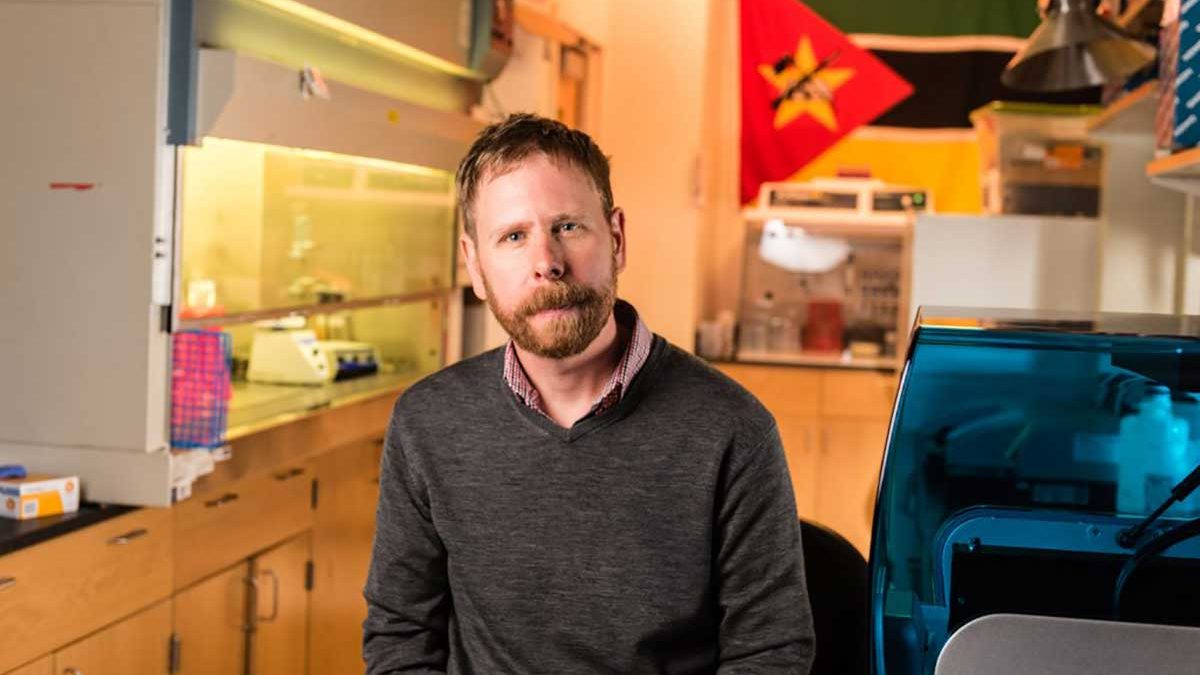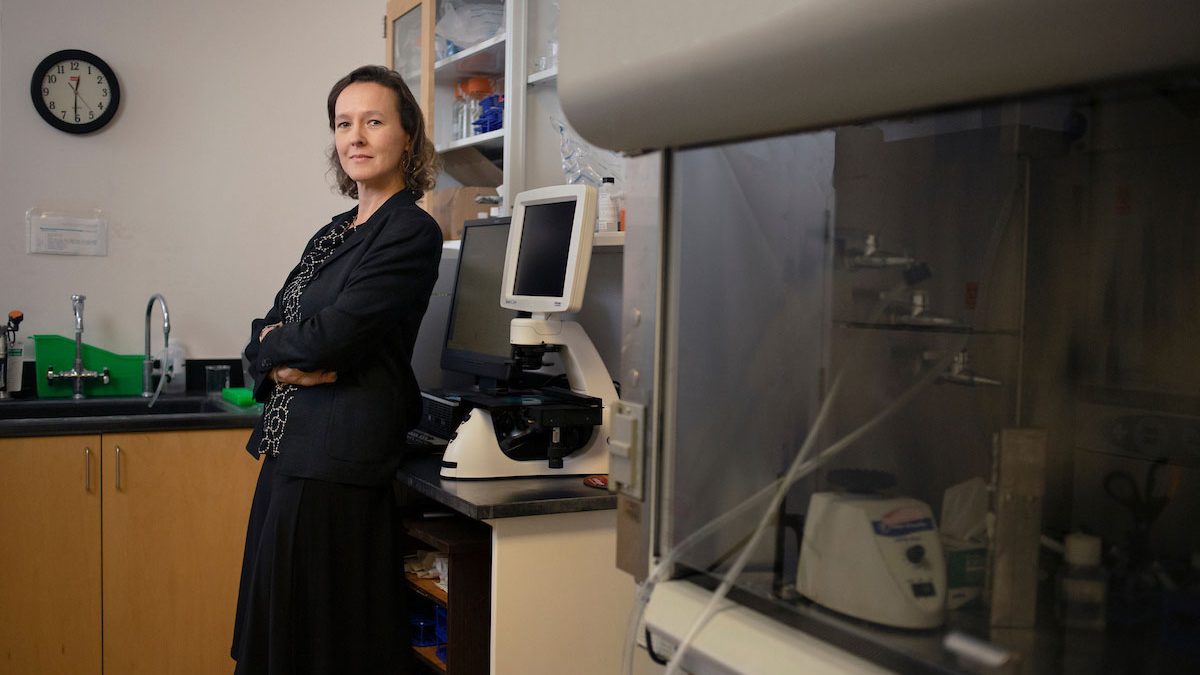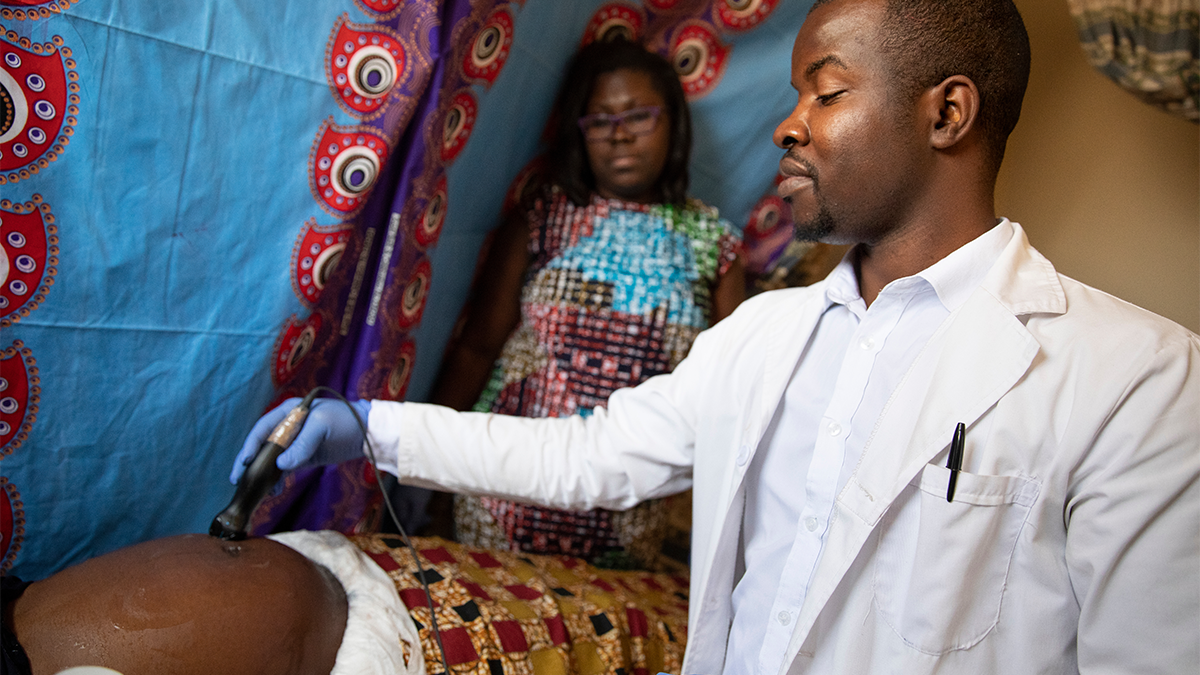Poor sanitation is linked to a number of transmitted diseases, including cholera, diarrhea, dysentery, hepatitis A, typhoid and polio. Exposure to fecal pathogens is responsible for a substantial portion of the global burden of disease, affecting more than 2.2 billion people annually.
To address this public health crisis, the United Nations recognized access to safe and clean drinking water and sanitation as a human right.
It’s a human right and equity issue that often flies under the radar here in the United States.
Joe Brown ’07 (Ph.D.), associate professor in the Department of Environmental Sciences and Engineering at the UNC Gillings School of Global Public Health, is researching how underserved populations and people experiencing homelessness in the U.S. are impacted by lack of access to water and sanitation.
Brown’s research interests are centered on how gut pathogens are transmitted from person to person through the environment. Together with partners in Alabama his research group has been working for the last year on a study funded by the Centers for Disease Control and Prevention to investigate the prevalence of sanitation-related pathogens in low-income communities in rural Alabama.
The group further seeks to understand links between gut infections and inadequate water and sanitation infrastructure. Are gut infections more common in areas where sanitation is most lacking?
To answer this question, Brown’s team is examining stool samples, using microscopy and DNA/RNA analysis to detect a wide range of sanitation-related pathogens, from bacteria to worms. At the same time, they’re collecting matched data on household sanitation to better understand whether infrastructure characteristics make the spread of these infections more likely.
“We are one of the only labs in the country looking at these specific infections in the rural United States,” said Brown. “We are playing an important role in trying to understand the extent of the problem of poor sanitation and whether it has a bearing on health outcomes.”
The results of Brown’s study could support the case for increasing investment and continuing infrastructure improvements in the U.S.
“Given the renewed interest in environmental justice and the underserved populations that are being left behind by progress, there is a lot of interest in this kind of work,” Brown stressed. “It is important to underscore that our work is not done on these issues. There are still populations in the U.S. that lack access to safe drinking water and safe sanitation, and it is important to understand how that happens and to figure out what we can do as a society to make that right for people.”
In fact, Brown is already working toward a solution: a new pilot project funded by Columbia World Projects that will test new systems to treat wastewater in rural Alabama. Working with a diverse group of collaborators inside and outside Alabama — including Gillings School graduates Mark Elliot ’10 (Ph.D.) and Maura Allaire ’15 (Ph.D.) — Brown will test if decentralized sanitation systems improve health impacts in the state’s Black Belt region, where the soil is often incompatible with traditional septic systems. Brown and the team hope these innovative systems will provide immediate benefits to households in rural Alabama and viable solutions for more resilient infrastructure for communities around the world.
An engineer who works on public health issues, Brown said these projects and his work with the Water Institute are a natural fit.
“The disciplinary connection between sciences and engineering and public health is really unique and one that I think has developed and grown into an institutional culture here, where we appreciate the deeply interconnected nature of environmental quality and public health. UNC is a really special place to work on these issues.”
All of the work being done at the UNC Water Institute is tied to the United Nations Sustainable Development Goal 6 (SDG 6): Clean Water and Sanitation, which includes targets to achieve universal and equitable access to safe and affordable drinking water for all and to adequate and equitable sanitation and hygiene for all.
The 2020 Times Higher Education Impact Rankings ranked UNC-Chapel Hill first in the world for SDG 6. This rating is largely due to the work of the UNC Water Institute, which depends on donors and foundations to do much of its work.






